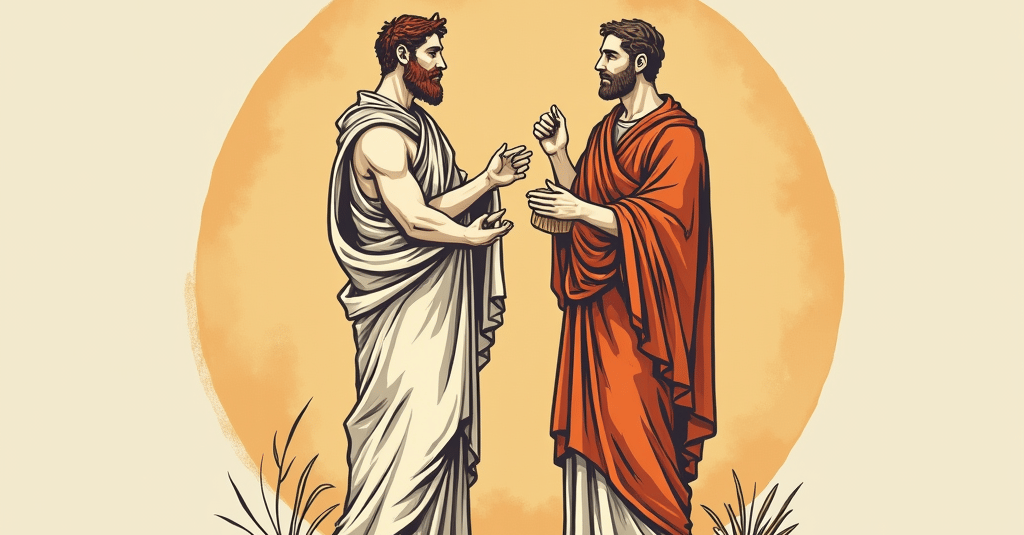Why Stoicism Is the Best Philosophy for the Modern World
In an era of constant change, information overload, and unprecedented global challenges, many are turning to ancient wisdom for guidance. Among various philosophical traditions, Stoicism stands out as particularly well-suited for navigating the complexities of modern life. This article explores why Stoicism might be considered the best philosophy for our contemporary world.
STOICISM
8/18/20242 min read


Emotional Resilience in a Turbulent World
Mastering Your Reactions
Stoicism teaches that while we can't control external events, we have complete control over our reactions to them. This principle is invaluable in today's fast-paced, often stressful environment.
Cultivating Inner Peace
By focusing on what's within our control, Stoicism offers a path to inner tranquility amidst chaos. This is especially relevant in a world where external pressures and distractions are constant.
Practical Wisdom for Daily Life
Actionable Principles
Unlike some abstract philosophical systems, Stoicism provides practical, actionable advice for everyday situations. This makes it highly applicable to modern challenges.
Emphasis on Virtue
Stoicism's focus on cultivating virtues like wisdom, justice, courage, and self-control offers a clear ethical framework for decision-making in complex situations.
Mindfulness and Present-Moment Focus
Antidote to Digital Distraction
In an age of smartphones and social media, Stoicism's emphasis on mindfulness and living in the present moment serves as a powerful antidote to digital distraction.
Improved Mental Health
The Stoic practice of focusing on the present and accepting what cannot be changed aligns well with modern psychological approaches to managing anxiety and depression.
Resilience in the Face of Adversity
Preparing for Challenges
Stoicism teaches the practice of negative visualization – imagining worst-case scenarios to be mentally prepared. This can be particularly useful in our unpredictable world.
Embracing Change
The Stoic acceptance of change as a natural part of life is highly relevant in our rapidly evolving society and can help reduce stress associated with uncertainty.
Ethical Leadership and Decision Making
Guiding Principles for Leaders
Stoic principles of self-discipline, duty, and ethical behavior provide a solid foundation for leadership in both business and politics.
Long-Term Thinking
Stoicism encourages considering the long-term consequences of actions, which is crucial in addressing global challenges like climate change and social inequality.
Personal Growth and Self-Improvement
Continuous Self-Reflection
The Stoic practice of regular self-examination aligns well with modern concepts of personal development and growth mindset.
Overcoming Ego and Materialism
In a world often driven by consumerism and social media validation, Stoicism offers a refreshing focus on inner worth rather than external validation.
Adaptability in a Changing World
Flexibility of Mind
Stoicism teaches mental flexibility and adaptability, crucial skills in our rapidly changing technological and social landscape.
Global Perspective
The Stoic concept of cosmopolitanism – being a citizen of the world – is particularly relevant in our globally connected society.
Scientific Alignment
Evidence-Based Approach
Many Stoic principles align with findings in modern psychology and neuroscience, giving the philosophy added credibility in our scientifically-oriented world.
Cognitive Behavioral Connections
The similarities between Stoic practices and Cognitive Behavioral Therapy (CBT) make it a natural complement to modern mental health approaches.
Environmental Consciousness
Harmony with Nature
Stoicism's emphasis on living in accordance with nature resonates with contemporary environmental concerns and the need for sustainable living.
Moderation and Simplicity
The Stoic virtues of moderation and simplicity offer a philosophical basis for addressing overconsumption and environmental degradation.
Conclusion: A Timeless Philosophy for Modern Times
Stoicism's enduring relevance lies in its practical wisdom, emotional resilience, and ethical framework – all of which are desperately needed in our complex modern world. Its principles offer guidance for personal well-being, professional success, and addressing global challenges.
As we navigate the uncertainties and pressures of contemporary life, Stoicism provides a robust philosophical toolkit. It empowers individuals to find inner peace, make ethical decisions, and contribute positively to society. In many ways, this ancient philosophy seems tailor-made for the challenges of the 21st century, making it a strong contender for the best philosophy for our modern world.
By embracing Stoic principles, we can cultivate resilience, wisdom, and virtue – qualities that are timeless in their value and perhaps more necessary now than ever before.
Waste no more time arguing about what a good man should be. Be one - Marcus Aurelius
We suffer more often in imagination than in reality - Seneca
Wealth consists not in having great possessions, but in having few wants - Epictetus
